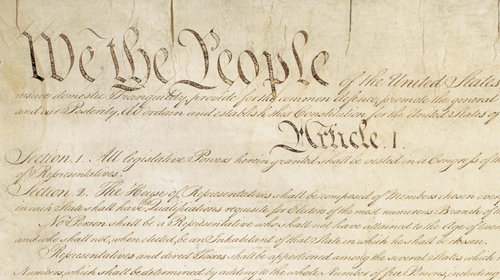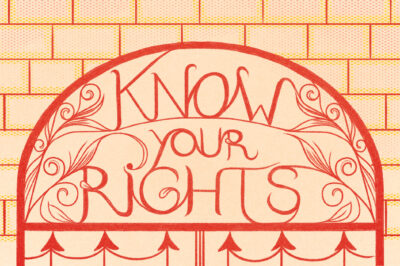
UPDATE: The State Department's response to the ACLU is posted here.
The ACLU sent a letter yesterday to the State Department thanking Secretary Clinton for the department’s unwavering defense of basic free speech principles in the backlash over the controversial “Innocence of Muslims” video. While the video was blamed for riots, violence, and unrest in many countries, the Obama administration stayed strong against calls at home and abroad to take down the video (though it did, rightly, receive some criticism for “asking” Google to take another look at whether the video violated the company’s terms of service).
Our vigorous First Amendment speech protections can be difficult to explain at home, and even more difficult to explain to foreign audiences unfamiliar with the value and importance we associate with free speech in our society. The ACLU aimed to provide guidance on the First Amendment’s role in protecting both speech and religion in America. Among other things, the letter tried to answer the following questions.
What is the First Amendment?
The First Amendment provides ardent and resolute protections for speech and expression in the United States. Upon gaining our independence from an autocratic and oppressive empire, our founders established a set of principles aimed at preventing the appearance of a similar regime in America. Critical to this effort was banning the government from restricting the speech or associational activity of citizens.
While these rights can, at times, lead to the protection of offensive or even hateful speech, we believe they ultimately create a stronger democracy by promoting a “marketplace of ideas” where everyone may freely present their views and challenge the views of others including—and probably most importantly—those of the government.
In the face of global violence and turmoil—such as the unrest reportedly sparked by the Innocence video—seeing the value of such strict protections can be challenging. To be sure, we believe the video is contemptible, wildly offensive, hateful, amateurish and ugly President Obama called the video “crude and disgusting,” but still recognized it is protected by the First Amendment and that he has no right to censor it.
These beliefs are not unique to the U.S. The rights secured by the First Amendment are universal and have been reaffirmed by many international treaties and agreements. The United Nations Human Rights Committee recently wrote:
“Freedom of opinion and freedom of expression are indispensable conditions for the full development of the person. They are essential for any society. They constitute the foundation stone for every free and democratic society. The two freedoms are closely related, with freedom of expression providing the vehicle for the exchange and development of opinions.”
Is Blasphemy Against the Law?
We further explain in the letter that refusing to censor this video or punish its creators is not an attack on Muslim-Americans’ religious freedom. Along with protecting speech rights, the First Amendment equally protects the rights of religious groups to practice their religion without government interference and guarantees the equal treatment of all religious groups under the law. While the Obama administration has received some criticism for its record on civil rights enforcement for Arab- and Muslim-Americans and South Asians, it has also stepped up to fight discrimination against these communities. There have been numerous investigations into refusal of land use for mosques or community centers as well as efforts to prevent discrimination in the workplace or bullying in schools.
Some nations have blasphemy laws that permit the government to censor or punish offensive speech. The U.S. used to have similar laws on the books, but found that blasphemy laws are easily abused and used against minority groups. Courts expressed concern that the peaceful articulation of a minority religious group’s belief system could be considered “blasphemous.”
Does the Innocence Video Qualify as Incitement?
We also explain how the Innocence video can’t be censored out of concern that it will lead to violence. It is true that one category of speech that is technically not protected by the First Amendment is “incitement.” Some have argued that the video qualifies and therefore can be legally censored and the creator punished. In order for speech to qualify as incitement it must meet three requirements: 1) The speaker must intend to cause violence, 2) the violence must be the likely result of the speech, and 3) the violence must occur very soon after the speech (it must be “imminent”). By those standards, the “Innocence video” does not make the cut.
Many have argued for censorship by invoking the popular yet flawed “shouting fire in crowded theater” analogy. To be clear, falsely shouting fire in a crowded theater where one intends to cause a stampede (and where the stampede is likely to occur) probably does qualify as incitement. However, when used as an analogy it is easy to target any unpopular speech. In fact, this analogy originated during the conviction of a political activist who was peacefully protesting the draft during World War I.
Further, the violence blamed on the video doesn’t meet the imminence prong. The video has been posted for months and it’s unlikely many of the protestors have even seen it. While it might be a tool used to stir up mob violence, that doesn’t mean the video itself could result in imminent violence. Otherwise, you could pick any controversial speech, use it to rile up a mob, and thus render that speech punishable under the law.
* * *
The First Amendment sets incredibly high safeguards for free speech. While the protection of offensive and hateful speech can at times be difficult to stomach, we believe it is ultimately the best policy to encourage political debate and a healthy democracy.
Learn more about free speech: Sign up for breaking news alerts, follow us on Twitter, and like us on Facebook.



